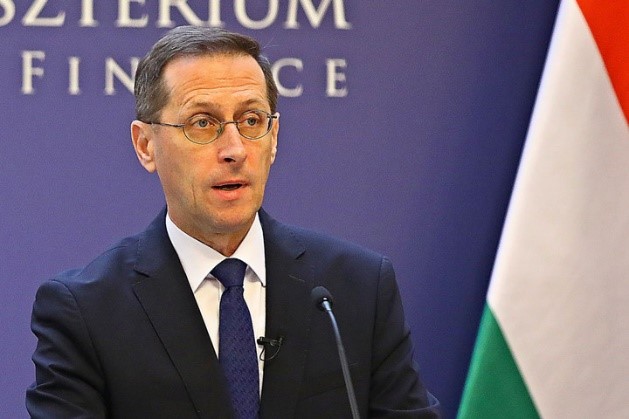The war is not good for the international and the Hungarian economy, but domestic growth can be preserved. Internal consumption can provide significant support for this, as well as the incoming capacities of previous investments can help the expansion. However, the uncertainty factor makes it difficult to see into the future, Magyar Nemzet writes in its analysis article.
Due to the war in Ukraine and the impact of the sanctions on Russia, uncertainty regarding the economic outlook has increased tremendously. Together with this, the Ministry of Finance calculates that the Hungarian economy can grow this year as well. After last year's 7.1 percent expansion, the increase could be around three to four percent.
Minister Mihály Varga with Figyeló : the previous growth forecast had to be reconsidered, as the inflation trajectory has changed, and the wave of Ukrainian refugees, which has reached half a million so far, also requires extraordinary measures. He reminded: the domestic economy is characterized by a high savings rate, and this is associated with a small loan portfolio.
The country is not in a bad situation, it can face unfavorable conditions in good condition. This is indicated by several data published by the Central Statistical Office in the past period.
Thus, among others, the growth of the industry in February and the first two months exceeded the expectations of the analysts. The volume of production exceeded the previous year by four and a half percent, while the seasonally and working day-adjusted industrial output increased by 1.6 percent compared to January.
The situation is similar in the construction industry: after last year's 13 percent increase in production in the construction industry, stagnation is expected this year as a whole, largely due to the war. The retail trade is in a more favorable position, the turnover of which increased by more than expected (by 9.8 percent) in February compared to the same period of the previous year. Analysts expect that the annual expansion of consumption may continue in the coming months. This also means that this area will support the growth of the economy throughout the year.
The investment rate in Hungary is high, and the government made sure that developments did not stop even during the crisis.
It is a positive sign that by the end of 2021, the level of public debt as a percentage of GDP decreased to 76.8 percent, and the budget deficit became 6.8 percent instead of the previously expected 7.5 percent.
This is a better performance than the EU average, since the European Commission expects an increase in the average of the EU member states in the area of public debt: the indicator could increase from 90.1 percent to 92.1 percent in 2020 - pointed out the other day László György, Innovation and Secretary of State responsible for economic strategy and regulation of the Ministry of Technology.
Source: Origo/Hungarian Nation
Featured image: MH/Tamás Purger












